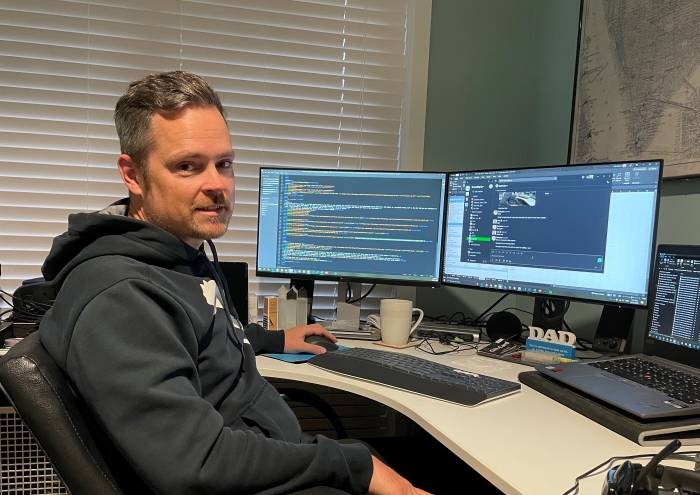My Volunteer Experience - Hazel Hui Tao

Welcome Hui Tao!
Hui Tao joined our SAcommunity Data Analytics Team as a volunteer, beginning with the team this year on the 14 August 2024 to explore data analytics. She also expressed an interest to maintain her skills in marketing, and joined the SAcommunity Media & Communications Team over 2025.
She attends for ~4 hours a week onsite in the Connecting Up office a part of Infoxchange around her classes and part-time work. Hui is now settling into a PhD at the University of Adelaide. "It’s been such a pleasure working with you and everyone at SAcommunity. I’ve really enjoyed the experience and learned so much." Hui 12 October 2024
Total Hours 62 This Year 24 Joined 14 August 2024 Last Check-in 8 August 2025 (Retired)
Personal Biography
Hui Tao is from China and is currently in her second year of a Master’s in Computing and Innovation at the University of Adelaide. She brings over 11 years of experience in marketing planning, mainly in real estate, and has strong skills in data-driven market analysis and digital marketing.
With a keen interest in data analytics and machine learning, she’s especially eager to sharpen her skills in a real-world setting. The volunteer position at Connecting Up presents a great chance to gain practical experience, and she’s keen to grow her Power BI data visualisation and analytics abilities while giving back to the community.
Looking forward, Hui plans to dive deeper into data-focused work, with a potential goal of pursuing a PhD in machine learning or building a career in data analytics. In the long run, she hopes to use data-driven insights to make a positive impact and contribute to society through her expertise.
Community Services in Councils Project
Hui started to look into presenting SAcommunity data analytics reports on local needs within a selected government council. This is part of the Data Analytics Team's work to undertake a project using Power BI to present statistics on services and service searches from SAcommunity >>here https://sacommunity.org/statistics
Media and Communication Project
Hui also joined the SAcommunity Media and Communications Team in 2025 to start to look at the team's work, and she has begun to work with Volunteer Dylan Reed to assist in contributing to the August and September Community Events Calendars.
"I'd love to help tell the stories of South Australian community organizations through interviews and featured articles. The chance to create meaningful content while gaining practical experience in community journalism really appeals to me."
The program includes utilising a program using Bee Pro, Canva and Teams, to plan and present storytelling articles on South Australian community services for SAcommunity media channels. Volunteers create stories capturing the missions, histories, activities and events from over 14,000 groups listed to help raise awareness, create connections and build community capacity.
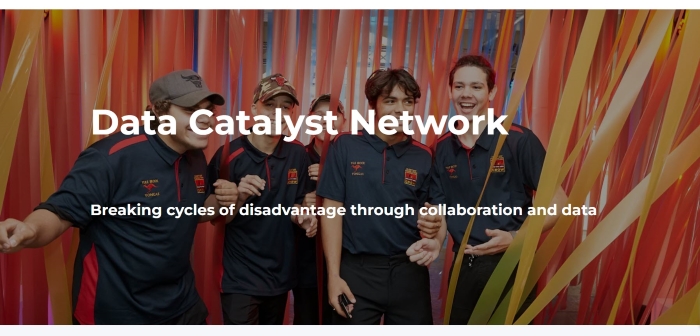
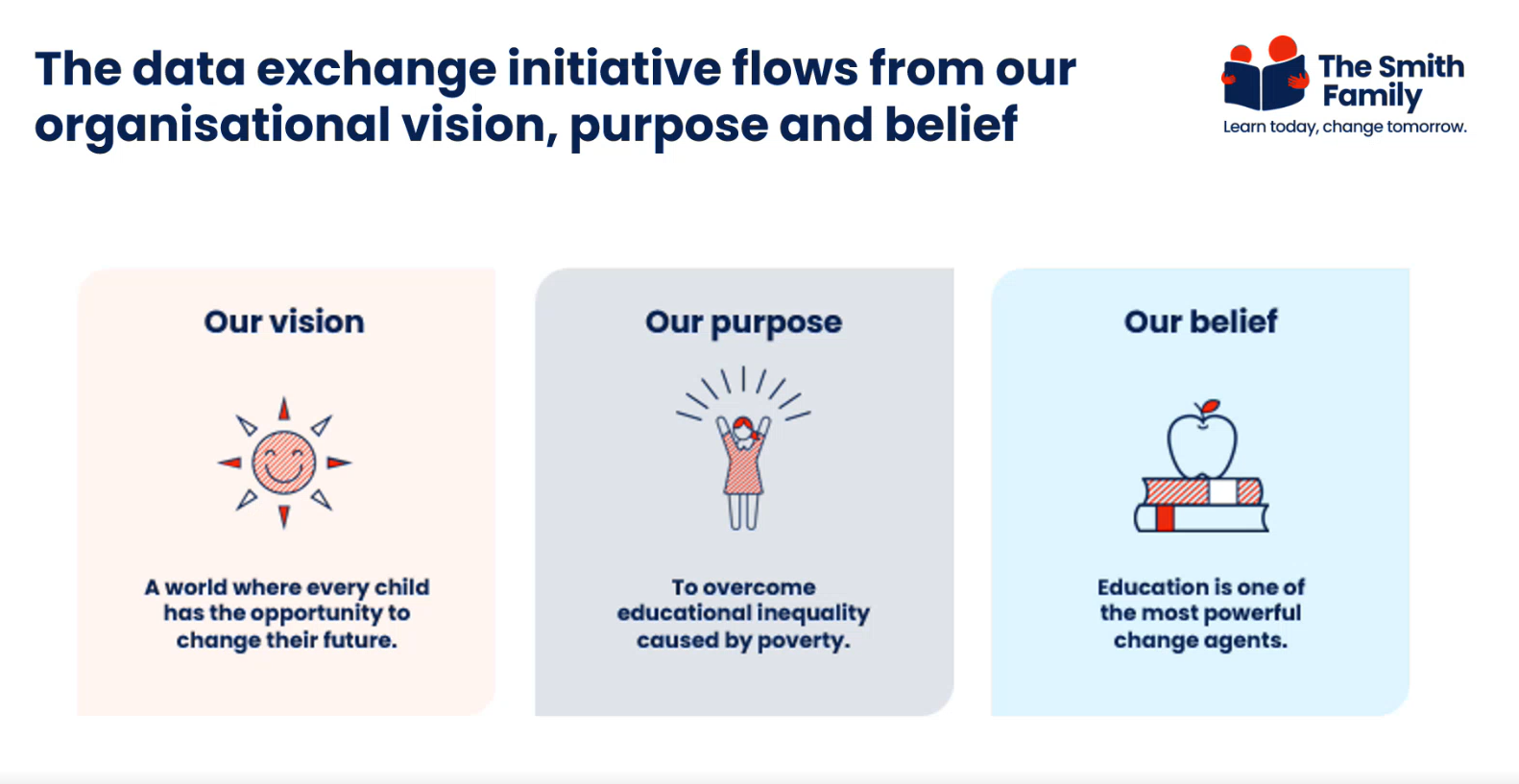
DCN September Webinar | Working with Government data - Lessons from the Life program
This meet-up focused on the critical topic of government data sharing projects, with Info Exchange recently releasing resources to support organizations in this endeavor. The session featured Anne Hampshire from The Smith Family and David Engelhardt from the South Australian Department of Education, who shared their experiences with data sharing in the "Learning for Life" program.
The discussion emphasized that while data sharing can be challenging and sensitive, particularly when handling sensitive information, it's essential to ensure proper management and implementation. The Smith Family, a large national not-for-profit organization, demonstrated how their data sharing initiatives align with their organizational vision of creating opportunities for children to change their futures.
The interactive session included a poll to understand attendees' experiences and future plans regarding government data sharing projects, though the transcript only captures the beginning of what appears to be a comprehensive discussion on data sharing practices and collaborations between government departments and organizations.
DCN October Webinar | Using linked data to support transitions to school
In this webinar, the Data Catalyst Network discussed research on early childhood development and disadvantage in South Australia. Gene Mercer presented findings that examined developmental vulnerabilities among children experiencing disadvantage. The research highlighted that while some children from disadvantaged backgrounds develop vulnerabilities, others do not show these adverse outcomes - though Mercer cautioned that "the absence of bad is not necessarily good."
Key points from the discussion included South Australia's Royal Commission into early childhood setting a goal to reduce developmental vulnerability from 22% to 15%, the importance of understanding both adverse outcomes and positive development, and the limitations of current data in measuring thriving or positive outcomes. The presentation also outlined plans for a second phase of research incorporating data from family support services to better understand resilience factors, and noted the potential for future geographic analysis of the data, though this wasn't included in the current study.
The discussion emphasized the need for better data on positive developmental outcomes, not just adverse ones, and highlighted future research directions including deeper analysis of protective factors and resilience in children experiencing disadvantage. This research contributes to the network's broader goal of using data innovatively to understand and address cycles of disadvantage in the community sector.
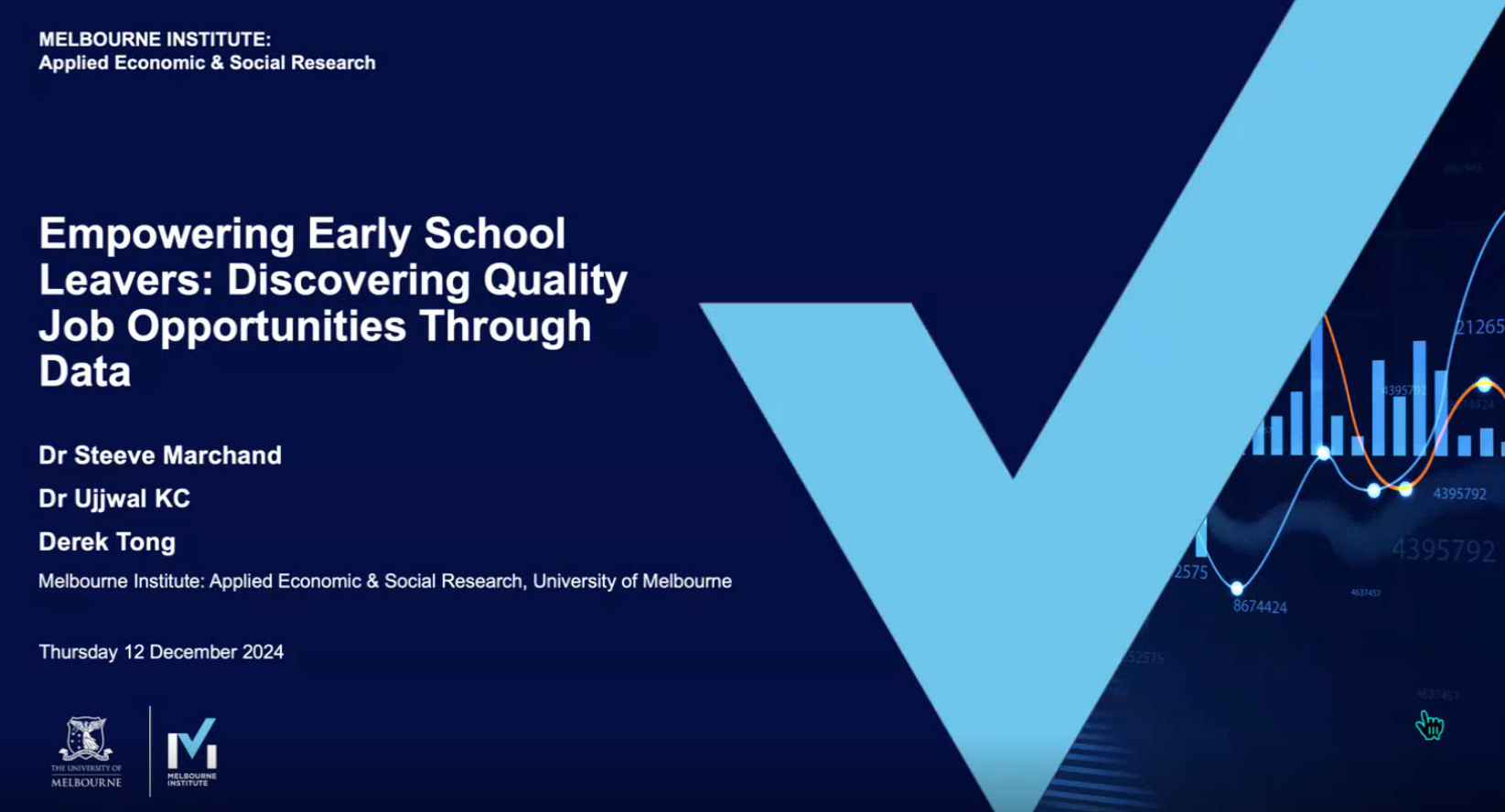
Data Catalyst Network Webinar | Empowering Early School Leavers: Discovering Quality Job Opportunities Through Data - 12 December 2024
In this webinar, the network explored crucial developments in employment data analysis and its practical applications.
Steve Marchand presented findings from a comprehensive data analysis project focused on youth employment outcomes. The project emphasized the importance of standardized data management, particularly in matching job vacancy information with formal occupation codes to enable broader labor market analysis. This methodical approach allows for better tracking of employment duration and outcomes, helping to identify patterns in job placement success and challenges.
The discussion highlighted the critical role of cleaned and standardized data in understanding employment patterns, particularly for disadvantaged young people. By linking occupation codes with labor market indicators, the project aims to provide more targeted insights into job placement effectiveness and retention rates. This systematic approach enables service providers to better understand which placements lead to more sustainable employment outcomes.
A key emphasis of the presentation was on making complex data accessible and practical for service providers. The project demonstrates how effective data management can lead to enhanced employment support and better outcomes for young people. As highlighted in the closing discussion, the ultimate goal is to ensure this data analysis translates into tangible benefits at the local service delivery level, with Marchand offering to conduct bespoke analysis for organizations with specific needs to support their work with young people.
Image: Mentor session: Sam Lloyd, Marketing Lead Connecting Up and Hui Tao 20 September 2024
Mentor Session
Connecting Up Volunteers and Interns are provided with the opportunity to select staff members from Connecting Up and across the wider Infoxchange organisation for an informational mentor meeting. Here they have the opportunity to ask more about staff members job roles and employment journey, and learn about their career and professional development, to gain insights and guidance that can be applied towards their own success.
Volunteers and interns both prepare 5-6 questions for their mentors and then are encouraged to record 5-6 aspects they felt were helpful for them to share on their portfolio for both themselves and other volunteers, and Hui Tao shared her experience in meeting Sam Lloyd, Marketing Lead Connecting Up.
Questions:
1. Digital Platform Strategies: In Australian digital marketing, which media platforms are prioritized (e.g., Facebook, Instagram, X)? Given their different audience demographics, what are the key similarities and differences in strategies across these platforms?
According to Sam Lloyd, each platform requires a distinct approach based on demographics and engagement patterns. Facebook appeals to older demographics and is effective for B2B solutions, offering detailed targeting tools. Instagram has a more varied age spread and works better for visual products with strong emotional engagement. X (formerly Twitter) is currently considered less valuable for marketing except for broad brand awareness.
2. AI Impact on Marketing: How has AI's rise influenced current digital and traditional marketing communications? Is there a growing trend towards using AI for evaluating campaign effectiveness or analyzing customer profiles?
Sam Lloyd takes a cautious approach to AI in marketing, viewing its capabilities as somewhat overstated by the tech industry. He recommends using AI specifically for analyzing anonymized customer data, comparing campaign performance metrics, and processing large datasets for insights, but emphasizes it should be treated as a supporting tool rather than a primary decision-maker. He particularly stresses the importance of not feeding personal information into AI systems and using it to augment rather than replace human judgment in marketing decisions.
3. Brand Campaign Metrics: Considering brand campaigns often don't directly correlate with sales figures, what specific metrics and dimensions are commonly used in Australia when selecting or evaluating a brand campaign?
Brand campaign effectiveness is measured through three key types of recall measurement: aided recall (showing consumers a list of brands and measuring recognition), unaided recall (asking consumers to name brands without prompting), and brand position metrics (whether people know the brand exists, associate it with the product category, and if it's their first thought in the category).Sam Lloyd emphasizes that while brand campaigns may not show immediate sales results, they build long-term value and should be measured through surveys before and after campaigns to track changes in brand awareness and perception.
4. Live Streaming E-commerce Prospects: With live streaming e-commerce booming globally, what is your perspective on its development prospects within the Australian market?
For live streaming e-commerce in Australia, Sam Lloyd identifies significant cultural and market challenges, noting that Australian consumers strongly prefer control over their purchasing process and require high levels of transparency and trust. Success in this market would require building strong trust with the audience, providing clear verification methods for prices and products, and adapting to local market preferences with professional local knowledge, making it a challenging but potentially viable channel if properly executed with these considerations in mind.
5. Digital Marketing KPIs: What are the typical key performance indicators (KPIs) used to evaluate digital marketing professionals in the Australian market? How is success generally measured in our industry?
Rather than universal KPIs, Sam Lloyd emphasizes the importance of campaign-specific metrics and a portfolio-based approach using the STAR method (Situation, Task, Action, Response) to demonstrate concrete outcomes. He stresses that meaningful KPIs should focus on specific, measurable results rather than vanity metrics, with the emphasis on showing clear connections between marketing actions and business outcomes, whether they're lead generation, conversion rates, or other relevant performance indicators.
6. Marketing Talent Criteria: When hiring for your marketing team, what are the most crucial qualities or skills you look for in candidates?
When hiring marketing professionals, Sam Lloyd prioritizes candidates who demonstrate a genuine interest in the company, possess strong foundational marketing knowledge, and show openness to learning and adaptation. Key qualities include the ability to think logically, understand marketing principles, admit mistakes, and fit within team culture. He particularly values results-oriented individuals who can diagnose campaign performance and adapt to changing trends while maintaining a solid grasp of marketing fundamentals.
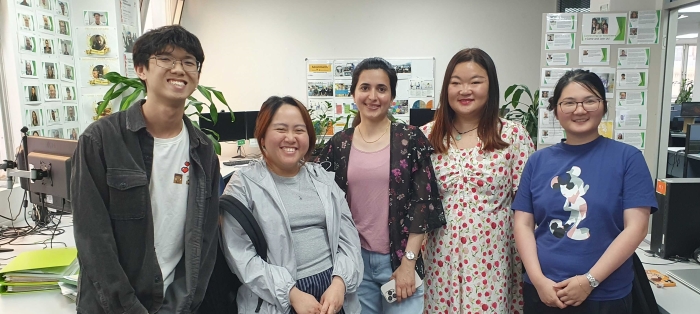 Image: Friday Volunteer Group 13 December 2024
Image: Friday Volunteer Group 13 December 2024
Volunteers Jason Chun Kwan Lam, Alex Thi Ngoc-Bich Nguyen, Anju Odedara, Hui Tao and Jacinta Jiawei Qi
Sign up for the newsletter!
Subscribe to our monthly newsletter to receive news, information and events for the community sector in SA.




